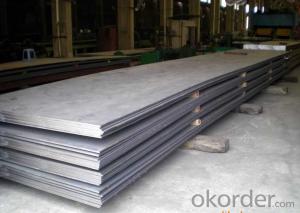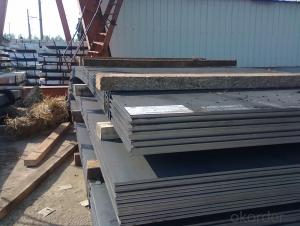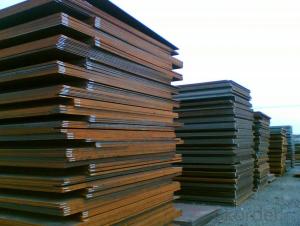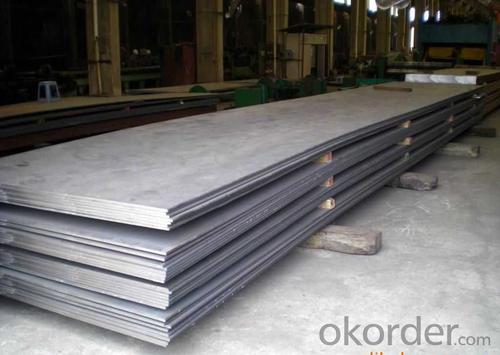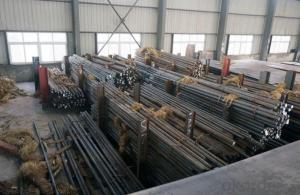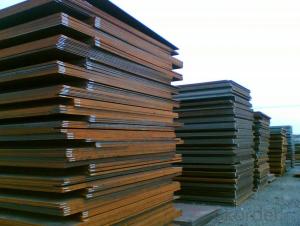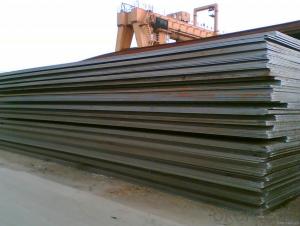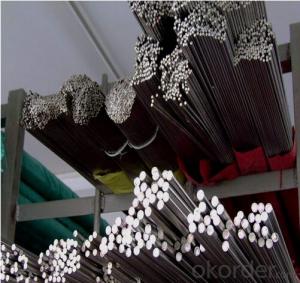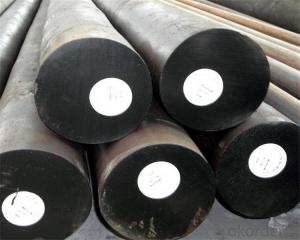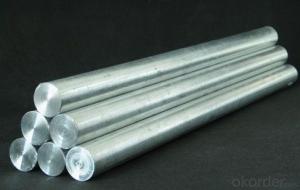Steel Plate DIN 1.2344 Special Steel Carbon Steel
- Loading Port:
- China main port
- Payment Terms:
- TT OR LC
- Min Order Qty:
- 25 m.t.
- Supply Capability:
- 10000 m.t./month
OKorder Service Pledge
Quality Product, Order Online Tracking, Timely Delivery
OKorder Financial Service
Credit Rating, Credit Services, Credit Purchasing
You Might Also Like
Specification
Type:
Alloy Steel
Shape:
Steel Sheet
Standard:
ASTM,JIS,EN,API,DIN,BS,GB,AISI
Surface Treatment:
Dry,Oiled,Color Coated,Copper Coated,Coated,Galvanized,PVDF Coated,Bright,Polished,Chromed Passivation,Black
Shape:
Round,Hexagonal,C Channel,Square,U Channel
Technique:
Spring,EFW,Extruded,Forged,ERW,Cold Drawn,Cold Rolled,Hot Rolled
Certification:
BSI,UL,API,CE,RoHS,IBR,BV,SGS,ISO
Steel Grade:
A53(A,B),20#,10#,SS400-SS490,600 Series,400 Series,300 Series,200 Series,HRB400,RHB335,Q235B,Q215B,Q235,Q215,Q195
Thickness:
as required
Length:
as required
Net Weight:
as required
Chemical Composition%
| Country | Standard | C | Si | Mn | Cr | Mo | V | S | P |
| China(GB) | 4Cr5NoSiV1 | 0.32-0.45 | 0.80-1.20 | 0.20-0.50 | 4.75-5.50 | 1.10-1.75 | 0.80-1.20 | ≤0.030 | ≤0.030 |
| USA(ASTM) | H13 | 0.32-0.45 | 0.80-1.20 | 0.20-0.50 | 4.75-5.50 | 1.10-1.75 | 0.80-1.20 | ≤0.030 | ≤0.030 |
| Germany(DIN) | 1.2344 | 0.37-0.42 | 0.90-1.20 | 0.30-0.50 | 4.80-5.50 | 1.20-1.50 | 0.90-1.10 | ≤0.030 | ≤0.030 |
| Japan(JIS) | SKD61 | 0.37-0.42 | 0.90-1.20 | ≤0.50 | 4.50-5.50 | 1.00-1.50 | 0.80-1.20 | ≤0.030 | ≤0.030 |
Available Size
| Rolled flat steel | 20-90mm×205-610mm×L |
Heat Treatment
| Item | Temperature℃ | Hardness |
| Anneal | 750-800 | ≤229HB |
| Quenching | 1020-1050 | 56-58HRC |
| Quenching | 530-600 | 45-50HRC |
Characterstics
| 1.Higher thermal strength and hardness | ||||||
| 2.Better toughness and elevated temperature fatigue resistance | ||||||
| 3.Hardness maintaining ability at 600℃ | ||||||
| 4.Good polishing performance |
Applications: Suitable for aluminum and copper die-casting moulds working for long time at elevated temperatures,hot extrusion dies,core rod forging dies,plastic moulds,etc,also suitable for heat resistance thimbles,push rods and ejector sleeves


- Q: How does special steel perform in high-speed machining operations?
- Special steel is designed with high-speed machining operations in mind, as it possesses unique properties that make it perfect for cutting, drilling, and shaping at high speeds. To begin with, special steel boasts excellent thermal conductivity, enabling it to effectively dissipate heat generated during machining. This is crucial in high-speed operations, as excessive heat can result in tool wear and deformation. By efficiently transferring heat away from the cutting edge, special steel helps prolong tool lifespan and maintain dimensional accuracy. Additionally, special steel exhibits high hardness and strength, enabling it to withstand the intense forces and pressures encountered during high-speed machining. This allows it to retain its shape and integrity, reducing the likelihood of tool breakage or deformation. Furthermore, its strength ensures that the machined parts possess exceptional durability and resistance to wear. Moreover, special steel demonstrates good machinability, making it easy to cut and shape with minimal effort. Its composition and microstructure are optimized for efficient chip formation and removal, ensuring smooth operations and minimizing the risk of chip clogging or tool jamming. Furthermore, special steel often contains alloying elements like chromium, molybdenum, and vanadium, which enhance its resistance to corrosion and wear. This is particularly important in high-speed machining, where the cutting tools and workpiece are in constant contact. The improved corrosion and wear resistance of special steel contribute to longer tool lifespan and improved surface finish. In summary, special steel is engineered specifically to excel in high-speed machining operations. Its thermal conductivity, hardness, strength, machinability, and resistance to corrosion and wear make it the preferred choice for applications that demand fast and precise metal removal.
- Q: How does special steel perform in forging applications?
- Special steel is highly desirable for forging applications due to its exceptional strength, durability, and resistance to wear and tear. It offers superior performance as it can withstand the intense heat and pressure involved in the forging process without losing its shape or integrity. Additionally, special steel's unique composition allows for precise shaping and intricate designs, making it an ideal choice for complex forging projects.
- Q: How does special steel contribute to the manufacturing of springs?
- Special steel plays a crucial role in the manufacturing of springs due to its unique properties and characteristics. Springs are mechanical components that store and release mechanical energy, and special steel provides the necessary strength, durability, and resilience for these applications. One of the key contributions of special steel to spring manufacturing is its high tensile strength. Special steel alloys are designed to have a higher strength-to-weight ratio compared to regular steels, allowing springs to withstand heavy loads and high stresses without deforming or breaking. This property ensures the longevity and reliability of springs, even in demanding applications such as automotive suspensions or industrial machinery. Furthermore, special steel exhibits excellent elasticity and resilience. Springs need to retain their shape and performance over repeated cycles of compression and extension. Special steel alloys are formulated to have a high elastic limit, meaning they can be deformed significantly and still return to their original shape without permanent deformation. This property allows springs to absorb and release energy reliably, providing the desired mechanical functionality in various applications. Another important contribution of special steel to spring manufacturing is its resistance to fatigue and corrosion. Springs are often subjected to cyclic loading, which can lead to fatigue failure over time. Special steel alloys are designed to have enhanced fatigue resistance, allowing springs to endure millions of cycles without failure. Additionally, special steel can be further treated or coated to enhance its corrosion resistance, which is crucial for springs exposed to harsh environments or chemicals. In conclusion, special steel significantly contributes to the manufacturing of springs by providing high tensile strength, excellent elasticity and resilience, fatigue resistance, and corrosion resistance. These properties ensure the durability, performance, and longevity of springs, making them essential components in various industries such as automotive, aerospace, and manufacturing.
- Q: Can special steel be used in the chemical industry?
- Yes, special steel can be used in the chemical industry. Special steel, such as stainless steel and corrosion-resistant alloys, are often preferred in the chemical industry due to their high resistance to corrosion, heat, and chemical reactions. These qualities make special steel suitable for various applications including storage tanks, pipelines, reactors, and other equipment used in the production and handling of chemicals.
- Q: Can special steel be used in the production of fasteners?
- Yes, special steel can be used in the production of fasteners. Special steel, such as alloy steel or stainless steel, offers enhanced strength, corrosion resistance, and durability, making it suitable for various fastening applications. Its unique properties ensure reliable and long-lasting connections in industries like automotive, construction, and aerospace.
- Q: How is corrosion-resistant steel used in marine environments?
- Corrosion-resistant steel, also known as stainless steel, is extensively used in marine environments due to its ability to withstand the adverse effects of corrosion caused by saltwater exposure. It is commonly utilized in the construction of various marine components, such as hulls, propellers, and equipment, to ensure durability and longevity. The steel's corrosion resistance properties help protect against rust and degradation, ultimately enhancing the structural integrity and performance of marine vessels and infrastructure in harsh saltwater conditions.
- Q: What are the specific requirements for special steel used in the chemical reactor industry?
- The specific requirements for special steel used in the chemical reactor industry can vary depending on the specific application and the type of chemicals being processed. However, there are some general requirements that are typically expected for this type of steel. Firstly, the steel used in chemical reactors must have excellent corrosion resistance. Chemical reactors often handle highly corrosive substances, such as acids, alkalis, and other reactive chemicals. Therefore, the steel must be resistant to the corrosive effects of these substances to ensure the integrity and durability of the reactor. Secondly, the steel should have high temperature resistance. Chemical reactions often require high temperatures to facilitate the desired chemical transformations. The steel used in these reactors must be able to withstand these elevated temperatures without losing its structural integrity or undergoing any significant deformation. Furthermore, the steel should have good mechanical properties, including high strength and toughness. The reactor may experience high pressure and mechanical stress during operation, so the steel must be able to withstand these conditions without failure. Additionally, the steel used in chemical reactors should have good weldability and formability. This allows for ease of fabrication and construction of the reactor, ensuring a reliable and efficient manufacturing process. Moreover, the steel should have low levels of impurities, such as sulfur and phosphorus. These impurities can adversely affect the performance of the steel in terms of corrosion resistance and mechanical properties. Therefore, the steel must meet strict quality standards to ensure it is suitable for use in the chemical reactor industry. In summary, the specific requirements for special steel used in the chemical reactor industry include excellent corrosion resistance, high temperature resistance, good mechanical properties, weldability, formability, and low levels of impurities. Meeting these requirements is crucial to ensure the safety, reliability, and efficiency of chemical reactors in various industrial processes.
- Q: What are the properties of ultra-high-strength steel?
- Ultra-high-strength steel possesses exceptional mechanical properties, including high tensile strength, excellent toughness, and superior resistance to deformation, making it incredibly durable and robust. It exhibits remarkable load-bearing capabilities, enabling it to withstand heavy loads and extreme conditions without experiencing significant deformation or failure. Additionally, ultra-high-strength steel offers exceptional fatigue resistance, corrosion resistance, and the ability to maintain its structural integrity under high temperatures, making it an ideal material for demanding applications in industries such as aerospace, automotive, and construction.
- Q: How does special steel contribute to the shipbuilding industry?
- Special steel plays a crucial role in the shipbuilding industry by providing enhanced strength, durability, and corrosion resistance to ships. It allows for the construction of lighter and more fuel-efficient vessels without compromising on structural integrity. Additionally, special steel enables the development of advanced ship components, such as propellers, hulls, and offshore structures, which can withstand harsh marine environments and ensure safer and more reliable operations at sea.
- Q: How is special steel used in the production of bearings for high-speed applications?
- Due to its unique properties, special steel is widely utilized in the manufacturing of bearings for high-speed applications. These bearings play a critical role in facilitating efficient movement between surfaces and must withstand extreme forces and rotational speeds. To meet these demanding requirements, special steel is selected for its remarkable strength, durability, and resistance to wear. The composition of special steel enables it to maintain its structural integrity under heavy loads, preventing deformation and ensuring the longevity of the bearing. Moreover, special steel possesses exceptional hardness and toughness, making it resistant to wear and fatigue caused by repetitive high-speed rotations. This characteristic is particularly important in high-speed applications where continuous motion generates significant heat and friction, leading to premature wear and failure of the bearing. By utilizing special steel, these issues are minimized, guaranteeing reliable and efficient performance. Additionally, special steel exhibits superior heat resistance, which is crucial in high-speed applications where temperatures can escalate due to friction and high rotational speeds. The ability of special steel to withstand elevated temperatures without compromising its mechanical properties or deforming is vital for preventing premature bearing failure and ensuring long-term performance. In conclusion, special steel is an indispensable material in the production of bearings for high-speed applications. Its exceptional strength, durability, wear resistance, and heat resistance enable bearings to operate reliably and efficiently under extreme conditions, ensuring smooth movement and reducing the risk of premature failure.
Send your message to us
Steel Plate DIN 1.2344 Special Steel Carbon Steel
- Loading Port:
- China main port
- Payment Terms:
- TT OR LC
- Min Order Qty:
- 25 m.t.
- Supply Capability:
- 10000 m.t./month
OKorder Service Pledge
Quality Product, Order Online Tracking, Timely Delivery
OKorder Financial Service
Credit Rating, Credit Services, Credit Purchasing
Similar products
Hot products
Hot Searches
Related keywords
